by Justin Mckibben | Apr 24, 2018 | Addiction, Ambien, Celebrity, Drug Abuse, Methadone, Prescription Drugs, Recovery, Valium, Vicodin
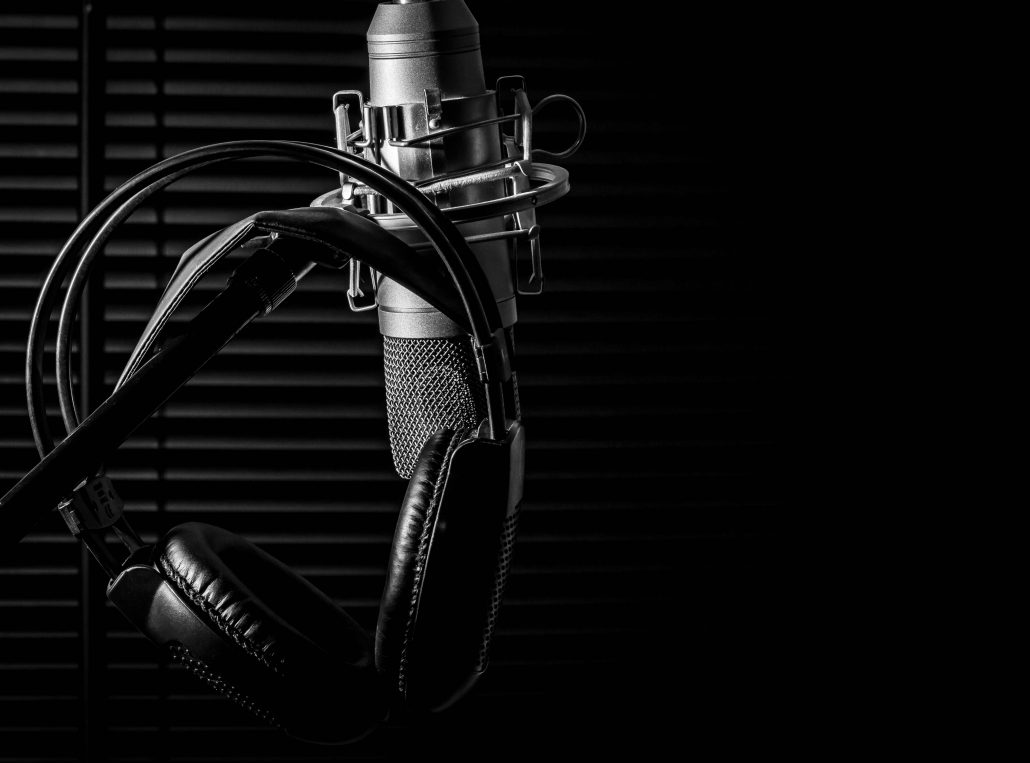
Eminem; Marshall Bruce Mathers III; The Real Slim Shady, is not just an icon in rap who had an unfathomable impact on hip-hop culture. He is also a man who has endured a lifetime of public controversy, private conflict, personal loss and emotional pain. Not only does this make his music career that much more powerful, but it makes his journey through addiction and recovery that much more gripping. With Eminem celebrating 10 years of sobriety this month, we take a quick look at the story of sober Slim Shady.
Eminem Celebrating Sobriety
A few days ago, between his headlining sets at this year’s Coachella, 45-year-old Marshall Mathers took to social media to share a message with his fans. On Instagram Slim Shady posted a photo of his ten-year medallion on Saturday, April 21. The circle, marked with an ‘X’ for the Roman numeral ten, is a token he received to commemorate a decade of continuous sobriety. To caption the image, he wrote:
“Celebrated my 10 years yesterday”
In just 2 days’ time, the image had already garnered over 1.7 million likes and over 33,000 comments. He wasn’t the only one utilizing his social status to share that powerful moment. Fellow rap artist and friend in sobriety Royce Da 5’9” also took to Twitter to give the real Slim Shady a shout out for his recovery milestone, writing:
“Happy sobriety birthday to my mentor @Eminem… Keep fighting the good fight homie… I love you for life”
Eminem has also shared moments of his journey through recovery with other famous sober peers, including Sir Elton John. The post prompted many fans on social media to congratulate Mathers on his anniversary. Others shared how he had helped inspire many others in recovery.
The last ten years have not been easy for Slim Shady, but it seems they have been worth it.
A Quick Look at a Legend
Long before Eminem got sober, he was a household name and best selling artist. Over his whole career, he has had a truly incredible list of accomplishments, including:
- 10 number-one albums on the Billboard 200
- Five number-one singles on the Billboard Hot 100
- 4 million albums sold in the US
- 220 million records globally
- He is among the world’s best-selling artists of all time
- He is the only artist to have eight albums consecutively debut at number one on the Billboard 200
- Winner of 15 Grammy Awards, including Best Rap Album
All of this, not to mention successful clothing lines, the creation of his label Shady Records which helped launch artists like 50 Cent and Yelawolf, and his own Sirius XM Radio channel, Shade 45. He gave us such gifts as D12 and Slaughterhouse, while also inspiring countless other artists.
Eminem isn’t only known for his music, but also for the controversy surrounding him. Whether it was the ugly battles with his mother, ex-wife, or the legal trouble he was conflicted with publically, it all fueled an image of a man who lived in a courtroom fighting painful scandals. He used the pain in his creative process, and the world was given a lot of angry, violent, and even poetic moments.
The Academy Award-winning film 8 Mile, which he starred in, made him the first rap artist to ever win the award for Best Original Song with “Lose Yourself”. Followed by various other film and entertainment ventures.
Oh, and don’t forget the Marshall Mathers Foundation, which aids disadvantaged youth.
The list just goes on and on. There is not enough time here to cover the truly immeasurable impact Eminem has had on not just hip-hop culture, but on the overall culture in America.
Getting to 10 Years
Slim Shady has always been pretty public about his struggles with addiction to prescription drugs. It is laced in his image over the years and is a prominent subject of his music. Back in 2002, a fellow artist said he had been trying to straighten out, but while working on 8 Mile he was introduced to Ambien and this prescription took him deeper down the path. When talking about working on his album Encore, Slim Shady once said he would “just go into the studio and goof off [with] a pocketful of pills”.
In 2007, Eminem suffered from an accidental methadone overdose after his addiction had spiraled out of control. At one point he revealed that he was taking up to 60 Valium and 30 Vicodin pills a day. After adding Ambien to the mix, he made his way to methadone by the end of his substance abuse. In 2011 when interviewed about the overdose, he stated:
“The doctors told me I’d done the equivalent of four bags of heroin… They said I was about two hours from dying.”
In a 2011 New York Times interview Slim Shady said,
“I used to get pills wherever I could. I was just taking anything that anybody was giving to me.”
Following that near-death experience, the Detroit rap legend chose to attend an addiction treatment program in Michigan. However, he ended up relapsing short of a month out of the hospital.
He reported that his star status made rehab difficult for him to focus on himself. Instead, he chose to detox at a hospital and dove into counseling and therapy. He credits his children, including his biological daughter Hailie, and two adopted daughters Lainey and Whitney. He also gives credit to exercise, saying that running helped him find a healthier high that helped him sleep.
When looking at his story, it is absolutely remarkable the impact that Slim Shady had had on the world of hip-hop or just music in general. He has been described by many as one of the greatest artists of all time, with billions of fans all over the globe. To hear about the life he lived; through poverty, depression, desperation, and addiction, to be a living legend only speaks to the inspiration in his experience, strength and hope. We celebrate the path Eminem walks and the work he has done over the years to make it this far.
Thank you for sharing, Slim Shady.
It can be a real inspiration to see some of the most successful people are recovering alcoholics and addicts. It reminds us that we all can suffer the same way and that we all have the same chance to build a better future. The more heroes we have every day that step up and share their message of hope, the more hope we may have that people seek the help they desperately need. If you or someone you love is struggling with substance abuse or addiction, please call toll-free now.
CALL NOW 1-888-922-5398
by Justin Mckibben | Apr 18, 2018 | Addiction, Anti-Social Personality Disorder, Anxiety Disorder, Depression, Dual Diagnosis, Mental Health, Mood Disorders, Post-traumatic Stress Disorder, Schizophrenia

(This content is being used for illustrative purposes only; any person depicted in the content is a model)
It is not so far-fetched to be told that someone whose life is consumed with drug or alcohol dependency can find themselves facing the emotional and mental fallout. When dealing with mental health issues, it is not rare for people to also struggle with substance use disorder. Co-occurring conditions such as these tend to feed off of each other, or even help create one another.
It is almost like when someone has high blood pressure, we are not surprised when they develop heart problems. Sometimes side effects and symptoms of one condition can nurture new ailments.
According to so researchers, there are some more common combinations of co-occurring disorders with addictions. So which addictions are most likely to co-exist with each mental health condition?
Here are 5 of the most common co-occurring disorders with addictions (not in any particular order):
-
Schizophrenia with Marijuana Addiction
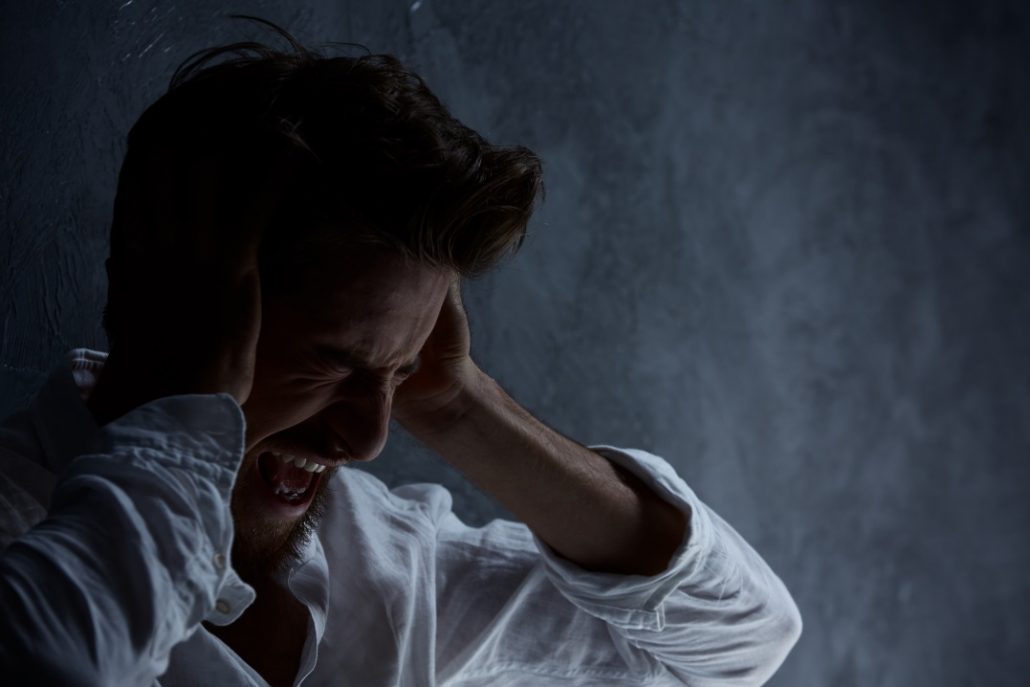
One disorder that commonly co-exists with a substance use disorder is schizophrenia. The American Journal of Psychiatry released a study that suggests approximately half of all people with schizophrenia also have a substance abuse disorder.
But one substance stands out the most when looking at people living with schizophrenia- marijuana.
The exact cause of schizophrenia is unknown, but many suspect a combination of environment, genetics and altered brain chemistry and structure to all play a part. So it is unclear why people with schizophrenia would abuse marijuana. Especially since this drug typically produces many of the same symptoms these people experience when in the midst of a schizophrenic episode. Some of these symptoms include:
- Short-term memory problems
- Delusions
- Unusual or dysfunctional ways of thinking
- Difficulty beginning and sustaining activities
- Impaired executive functioning
While not all symptoms are the same for everyone, some of these more common symptoms definitely overlap between the two. While it may not be obvious why, research suggests it is pretty obvious that marijuana is most popular for people with schizophrenia.
-
Alcoholism and Anti-Social Personality Disorder

You might be surprised with this one because most people assume alcohol is most commonly matched with depression.
Anti-social personality disorder is easier to understand when one explains the concept of personality disorders in general.
To put it simply, a personality disorder is an enduring pattern of personal experience and behavior that deviates noticeably from the expectations of the individual’s culture, which leads to personal distress of impairment. So antisocial personality disorder (ASPD) is characterized by a tendency to disregard and even violate the rights of others. Symptoms can vary from egregious to outright dangerous. They include:
- Irritability
- Aggressiveness
- Lack of remorse
- Consistent irresponsibility
- Recklessness
- Impulsivity
- Deceitfulness
- Lack of stability in a job and home life
- Disregard for society and laws
- Violation of the physical or emotional rights of others
Often the more intense cases earn the titles of sociopathic or psychopathic.
Alcohol abuse very frequency co-occurs with other mental health disorders. However, according to the National Institute on Alcohol Abuse and Alcoholism (NIAAA), the disorder with the closest connection to alcoholism is anti-social personality disorder.
In fact, people who drink to excess on a regular basis are 21 times more likely to deal with ASPD when compared to people who don’t have alcoholism.
The NIAAA also states that both of these disorders typically develop early in life. However, alcoholism can actually make the underlying mental illness worse. Intoxication can lower an individual’s inhibitions, which makes their antisocial behaviors more prevalent. This may also lead to more dangerous manifestations of the disorder.
-
Anxiety Disorders and Cocaine Addiction

Cocaine is an extremely powerful narcotic stimulant, which gives users feelings of intense euphoria. However, the tradeoff is a very steep price to pay considering how dangerous this drug really is. Continued cocaine use typically leads to symptoms that essentially mirror an anxiety disorder, including:
- Restlessness
- Hallucinations
- Paranoia
- Insomnia
- Difficulty concentrating
- Aggression
Because cocaine is a stimulant, it speeds up and amplifies activity of the brain’s neurotransmitters. Certain neurotransmitters at higher levels induce anxiety. So anxiety is actually a symptom of cocaine use already. Cocaine use also has the potential to create psychotic episodes. Some people even experience severe mental symptoms as a result of use.
As a long-term effect of cocaine use, brain circuits are more sensitive while struggling to respond to natural stimuli, and the results are often related to mood and mental health. Statistics show that there is a very high risk of anxiety and cocaine abuse occurring together. Then if you already have an anxiety disorder, the risk becomes even higher that you will develop a severe emotional problem when using a drug like cocaine.
While the adverse effects of cocaine use can eventually fade for those able to achieve a long-lasting sobriety, sometimes the damage lingers. Those unusual thoughts and behaviors can continue even long after someone has given up the drug.
-
Prescription Opioid Addiction and PTSD

Post-traumatic stress disorder (PTSD) is a mental illness that takes hold in the aftermath of an intense and traumatic experience. Often, people who survive tragedies, war and other dangerous or life-altering events will experience PTSD.
In some circumstances, people will leave their experience with serious physical injuries, and often, those injuries are treated with prescription painkillers. This is just one way that prescription opioids have contributed to a huge epidemic that has been hurting America for the past several years.
Prescription opioids often boost feelings of pleasure and calm inside the brain, and sometimes people who have PTSD end up abusing these medications in order to experience euphoria and numb themselves to not just their physical agony, but also their emotional trauma. This can become an endless cycle of self-medicating. This is especially true with veterans. In fact, some research indicates that veterans with pain and PTSD are 3 times more likely to receive opioids compared to those without any mental health disorders.
It is true that having effective pain medications is very important to improve the quality of life for those with physical pain, especially chronic pain patients. However, mixing powerful opioids like prescription painkillers with PTSD can lead to tragic outcomes. With increasing rates of veteran suicides over the past several years, one can only image what impact the surging opioid crisis may have had on those struggling with PTSD.
-
Depression with Heroin Addiction

Throughout one of the worst drug epidemics in American history, heroin has been a driving force behind countless overdoses and skyrocketing death rates. Heroin isn’t just devastating physically, but also mentally and emotionally crippling. The connection between these adverse effects and depressive disorders is remarkable.
The allure of heroin is that is can make users feel an overwhelming sense of pleasure for a short time. However, long-time use of heroin can burn out the portions of the brain responsible for producing natural signals of pleasure, leaving them incapable of feeling good on their own without the drug. The drug alters brain chemistry and creates mood changes.
Advances in Psychiatric Treatment estimates that 48% of opioid users have experienced depression at some point in their lives.
Extended use of heroin can eventually cause a form of brain damage that leads to depression. Users can become physically incapable of feeling happiness unless the drug is present. Withdrawal symptoms from heroin can also exacerbate symptoms of depression. Many of them are actually overlapping symptoms, such as:
- Restlessness
- Irritability
- Slow thinking, speaking or body movements
- Loss of interests
- Sleep problems
- Physical pains
- Headaches
- Changes in appetite
The combination of depression and heroin addiction is incredibly common. Sometimes it can be difficult for people to tell which issue came first, but ultimately they can both be exceedingly debilitating, or even deadly.
Dual Diagnosis Treatment
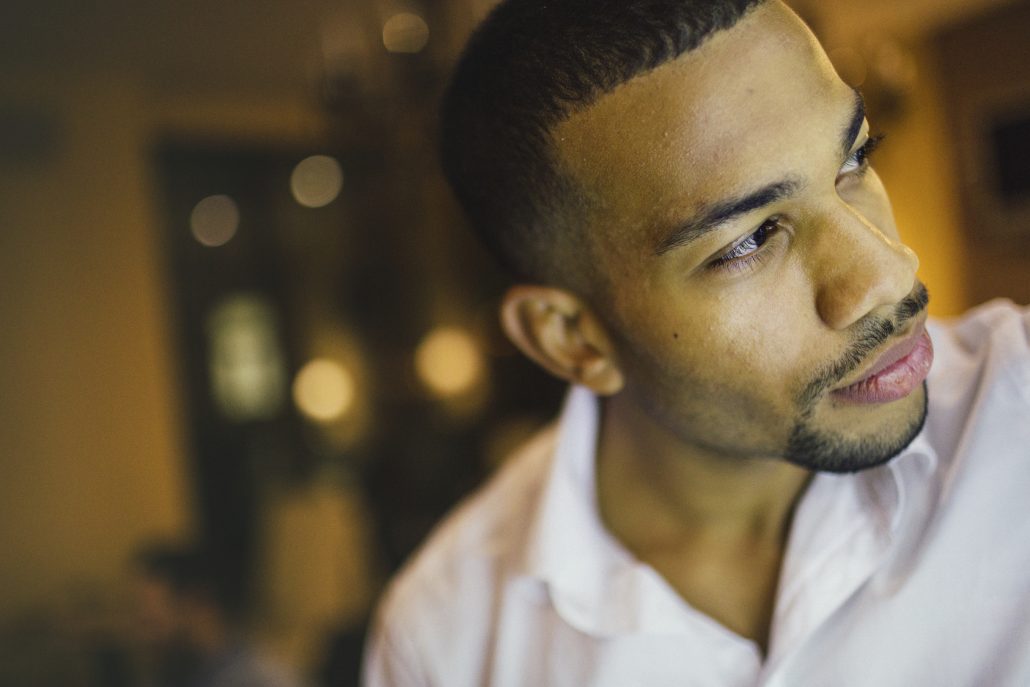
Dual diagnosis means that a person is dealing with two medical conditions that are co-occurring. In regards to the field of drug addiction, dual diagnosis specifically means that someone is struggling with both substance use disorder and another mental or behavioral health issue. Sometimes it is because prolonged drug use has contributed to developing a mental health issue, while other times it is because someone has tried to self-medicate when facing a mental health issue.
Dual diagnosis treatment is so important because it provides the opportunity to treat both co-occurring disorders simultaneously. For those suffering with more than one disorder, it is not nearly as effective to focus on treating one while ignoring the other. Holistic healing is all about addressing every aspect of each individual to help them find success in every part of their life.
Palm Healthcare Company believes in providing holistic addiction resources to help treat not just the addiction, but also any other issue that could be holding you back from achieving a full life of lasting recovery. If you or someone you love is struggling, please call toll-free now.
CALL NOW 1-888-922-5398
by Justin Mckibben | Apr 17, 2018 | Donald Trump, Marijuana, Medical Marijuana, News
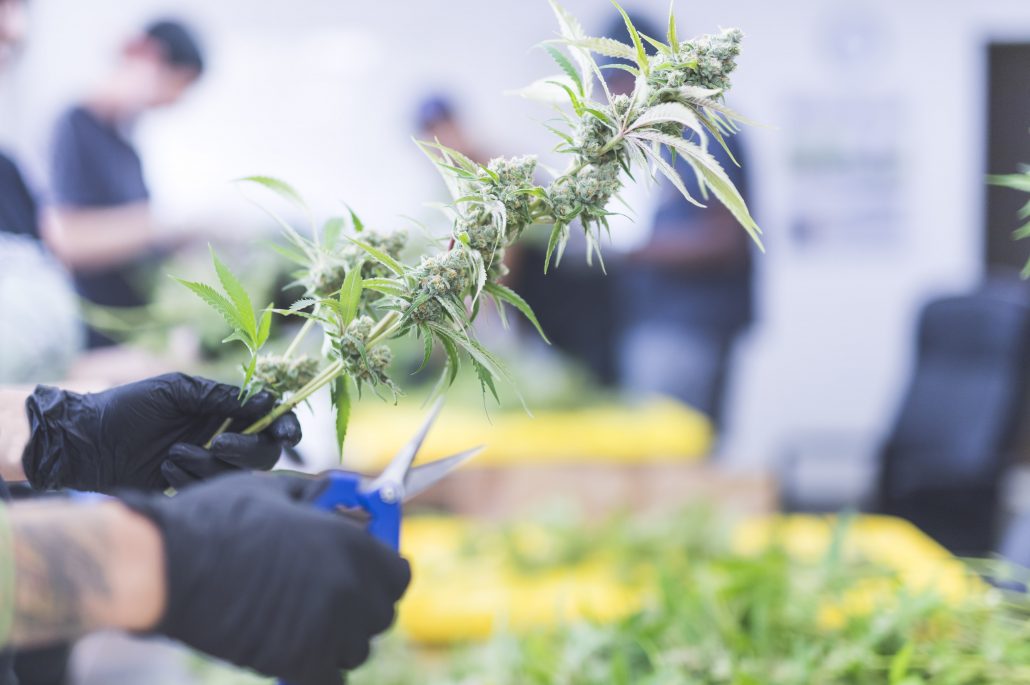
When the Trump administration’s Attorney General Jeff Sessions said in January he was determined to “return to the rule of law” in America, with the intention of enforcing federal prohibition of cannabis in all 50 states, it created quite a bit of backlash. Many officials in states where marijuana had been legalized either medically or for recreational use spoke out against it.
Just a few days after former Republican Speaker of the House John Boehner endorsed decriminalization, it seems there is more big news concerning cannabis.
Now, it seems President Trump himself is turning on Sessions. A recent report states that Trump has promised to support legislation that will protect the marijuana industry in states that have already legalized the drug.
Trump and Cannabis
During the 2016 Presidential campaign, then-candidate Trump was relatively inconsistent about his own position on cannabis. At one moment, he would pledge that he was going to respect state’s rights when it came to legalized marijuana. Then, he would criticize legalization and imply that it had to be stopped.
In 2015 at the Conservative Political Action Conference, he said recreational pot was “bad.” He even criticized Colorado, which was the first American state to legalize recreational marijuana sales, saying:
“They’ve got a lot of problems going on right now in Colorado – some big problems,”
But then a year later, on the campaign trail, Trump changed his tune during an interview in Colorado, saying:
“I’m a states person, it should be up to the states, absolutely.”
While it isn’t impossible to be opposed to recreational use while still supporting a state’s right to decide for themselves, many were still blindsided when Sessions made his announcement back at the beginning of the year that he doing away with the Obama era policy of non-interference with state laws on cannabis. At the time, Sessions stated:
“The previous issuance of guidance undermines the rule of law and the ability of our local, state, tribal, and federal law enforcement partners to carry out this mission.”
One person in particular who was taken aback was Colorado Republican Senator Cory Gardner, who said Sessions had promised him he’d do nothing to interfere with Colorado’s growing marijuana market.
Gardner Fought Back
Senator Gardner was not prepared to sit this one out, either. In protest of Sessions, Gardner used his power as a senator to block all appointments to the Department of Justice. Gardner’s pledge is especially impressive as a Republican fighting an administration run by members of his own party.
It did not go unnoticed. Other GOP members were not happy about Gardner’s insistence. Last month Gardner actually allowed some nominees to proceed as a show of “good-faith”. For months the senator has been meeting with the Justice Department to discuss the issue. Now it finally seems it may be all paying off for Gardner.
Following a promise from the Trump administration, Gardner said he would be fully releasing his holds on DOJ nominations. Gardner states,
“Late Wednesday, I received a commitment from the President that the Department of Justice’s rescission of the Cole Memo will not impact Colorado’s legal marijuana industry.”
Gardner also states that President Trump has promised Gardner-
“-that he will support a federalism-based legislative solution to fix this states’ rights issue once and for all.”
White House press secretary Sarah Sanders confirmed the administration’s position and said that Senator Gardner’s statement was accurate.
Currently, the drafting of legislation to protect states with legalized marijuana is underway. Some speculate it may be modeled after another Obama era budget amendment that prevented the Department of Justice from spending money to enforce federal laws against states where marijuana had been legalized, permitted the state law was being followed.
While at this time Sessions has not made a public statement about this development, sources familiar with the topic report that the Justice Department was not consulted before the phone call between Trump and Gardner.
So the next question is, will President Trump follow through on this promise? What kind of legislation is he willing to support? What language will be used to ensure that states have the ability to decide their own legal status and regulations for cannabis?
Help for Marijuana Abuse
While the legal status of cannabis may change as the government adjusts to new policies, the fact remains that it is still possible to abuse marijuana. Even when drugs are legal, there are still plenty of risks. We know this because there are drugs that have been legal for decades but still manage to negatively impact thousands of people. Habitual substance use can be extremely harmful, especially to someone who struggles with substance use disorder. Even marijuana can have adverse effects on the quality of life for someone with a substance abuse problem.
Cannabis is not commonly considered to be as dangerous as other illicit drugs, such as heroin or methamphetamines. However, people who use the drug can still experience different levels of dependence. Marijuana may not be as physically destructive and addictive as other “harder” drugs. However, psychiatrists also believe the psychological impacts of substances do make a difference. Psychology effects can be just as detrimental.
Getting help for marijuana abuse starts with a secure environment that offers a variety of therapeutic opportunities. Developing a healthy lifestyle without relying on the use of drugs is a crucial element of treatment for marijuana abuse. So as policies and public opinions change regarding cannabis, we should also make sure that there are always resources to help those who struggle with substance use disorder.
There still needs to be resources available to help people who suffer from abuse. Supporting addiction recovery means breaking the stigma and offering holistic and effective solutions. Palm Healthcare Company is here to help. If you or someone you love is struggling, please call toll-free now.
CALL NOW 1-888-922-5398
by Justin Mckibben | Apr 13, 2018 | Addiction, Drug Policy, Marijuana, Medical Marijuana, News
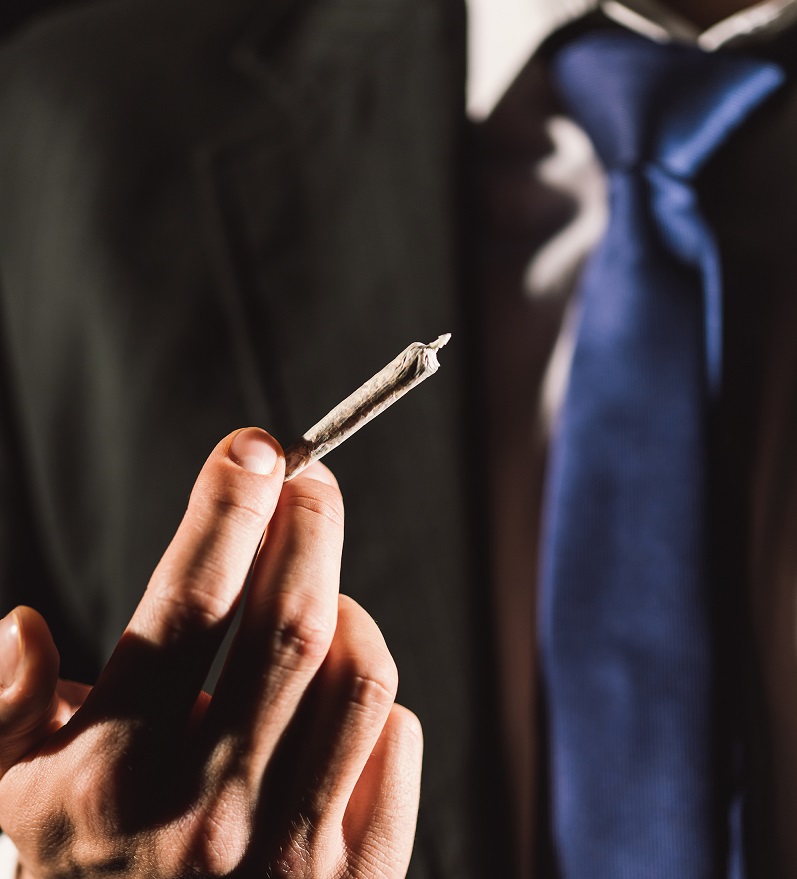
Anyone who pays attention to politics has a lot to talk about this week. There is plenty going on in the world of government, from Facebook and Congress to scandals and controversy. But one bit of surprising news comes from someone who has stepped away from politics for some time now. John Boehner, well-known figure in the Republican Party, recently has made a dramatic shift in support of cannabis legalization.
Who is John Boehner?
Just to provide a little background, John Boehner is an American politician who served as the 53rd Speaker of the United States House of Representatives from 2011 to 2015. He served on behalf of Ohio’s 8th congressional district from 1991 to 2015. This district includes rural and suburban areas near Cincinnati and Dayton.
For a long time, John Boehner was known for his hard-line stance against marijuana legalization. At one point he was even quoted as saying he was “unalterably opposed” to legalizing marijuana. While serving in government, Boehner was never an ally for marijuana advocates, and the only vote he ever cast on the topic of legalization was in 1999 when he fought against medical marijuana in Washington.
In fact, one advocate remembers Boehner as being in strong opposition to marijuana while in office. The executive director of the National Organization for the Reform of Marijuana Laws, Erik Altieri, said Boehner has actually opposed “even the mildest of marijuana law reforms.”
So many have seen this sudden endorsement from John Boehner for marijuana reform as a sign of the times, and how much the political landscape has changed.
Acreage Holdings
Acreage Holdings is a company that cultivates, processes and dispenses cannabis in 11 states around America. On the company website they state:
“These combined markets represent $9 billion in potential revenue by 2020, and we’re ready to move forward as legislation allows.”
The website also states:
“2018 is going to be a record-breaking year for Acreage, as we expect production to increase in several lucrative states including New York, Florida, California, Pennsylvania, Maryland and Maine. We’re looking beyond this year, however, with a comprehensive strategy that will make us the world’s largest fully-integrated cannabis company.”
With recent reforms the cannabis industry has a growing potential for profit. So there is no wonder John Boehner is now going to be joining the board of advisors at Acreage Holdings.
To sum it up, the company works to “make cannabis available to any patient who can benefit from safe and reliable access.”
Pro-Cannabis Change of Heart
So why the drastic change of heart? According to a tweet from Boehner:
“I’m joining the board of #AcreageHoldings because my thinking on cannabis has evolved. I’m convinced de-scheduling the drug is needed so we can do research, help our veterans, and reverse the opioid epidemic ravaging our communities.”
In one interview on the subject, Boehner stated:
“Over the last 10 to 15 years, the American people’s attitudes have changed dramatically. I find myself in that same position.”
Boehner said his change of heart really started when he watched cannabis help a close friend deal with their back pain. Then, he said, “you begin to really scratch your head” when looking at how many people are in prison for marijuana possession.
Still, Boehner maintains he has NOT tried using cannabis and does not intend to.
There is another name from the Republican Party standing with Boehner; Massachusetts Governor Bill Weld is also joining the board of Acreage Holdings. In a joint statement, both men say they think it is time for consideration of shifting federal marijuana policy. They pointed out the specific value cannabis could hold for veterans for treating things like:
Opinions from Advocates
Erik Altieri says that having John Boehner in their corner could be a huge help to marijuana advocates. Altieri believes it is crucial for Republican leaders like Boehner to take charge on this issue, stating:
“If this is only led by Democrats, we will continue to see no forward momentum on this issue. We really need to present this as the bipartisan issue it really is.”
Other advocates are still saying Boehner should be using his influence to work with people still in office toward better policy. Morgan Fox, a spokesman for Marijuana Policy Project, said:
“[Boehner] should be actively working to reform federal marijuana laws to allow states to determine their own policies, rather than just consulting with a business to navigate the conflicts between state and federal law.”
Talking about head scratching- it’s too bad he didn’t have that realization while still in office. Especially when you consider nearly half a million people were arrested for selling marijuana during his term as speaker.
New York Times also reports that Morgan Fox stated:
“[Boehner’s] positions on the issue while in House leadership most likely slowed progress for marijuana reform legislation, and he owes it to anyone whose life has been negatively impacted by a marijuana arrest to use his considerable influence to make up for that.”
According to a recent Gallup poll, the United States is currently at a record high for support of marijuana, with:
- 64% of Americans said marijuana should be legalized
- 72% of Democrats support it
- 51% of Republicans support it
Needless to say, stock in the cannabis industry mainstays saw a decent spike following the announcement from Boehner. Some argue that Boehner is just selling his influence to cash in on the up-and-coming cash crop. However, others say either way it is good for those hoping for an end to the old policies of prohibition.
As cannabis reform continues to evolve, there should also be resources available for those who do struggle with drug or alcohol abuse. Even as the substance becomes more widely accepted or even legalized, there will still be people who suffer from substance use disorder. As we support progressive changes in drug policy, we also need to make sure people have access to drug and alcohol treatment.
Supporting addiction recovery means breaking the stigma and offering holistic and effective solutions. Palm Healthcare Company is here to help. If you or someone you love is struggling, please call toll-free now.
CALL NOW 1-888-922-5398
by Justin Mckibben | Apr 10, 2018 | Alcohol, Alcohol Addiction, Alcoholics Anonymous, Alcoholism, Binge Drinking, Parenting, Underage Drinking
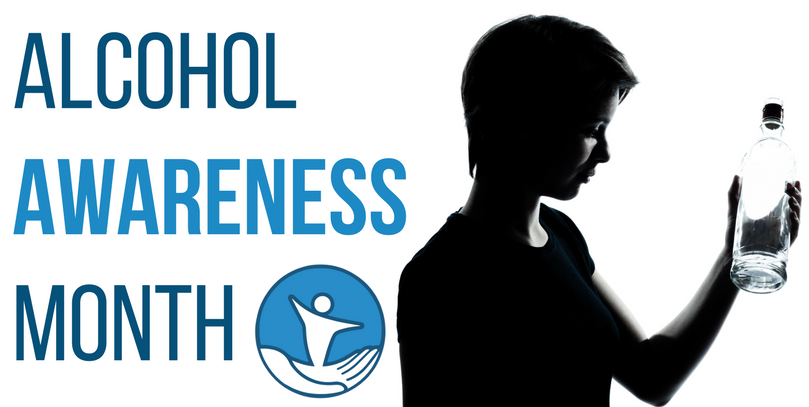
Did you know that April is Alcohol Awareness Month?
According to the Center for Disease Control and Prevention (CDC), excessive alcohol use led to approximately 88,000 deaths each year between 2006 and 2010. Among working-age adults between 20 and 64 years old, excessive drinking was responsible for 1 in every 10 deaths. Alcohol abuse is a greater risk than many people realize. Sadly, underage drinking in America has also become a very serious problem.
Back in April of 1987, the National Council on Alcoholism and Drug Dependence, Inc. (NCADD) began sponsoring the national observance of Alcohol Awareness Month in order to increase public awareness and understanding of the risks associated with alcoholism. America’s relationship with heavy drinking is already pretty intense, so taking the time for this month to reflect is probably a good idea.
A big goal of this observance is to reduce the stigma attached to alcohol abuse and addiction. Advocates are also encouraging local communities to focus on alcoholism and alcohol-related issues. Alcohol Awareness Month isn’t just for looking at the impacts on society, but also at the risks to the individual, and promoting education.
NCADD states that the theme for Alcohol Awareness Month is- “Changing Attitudes: It is not a rite of passage.”
Changing Attitudes
The risk alcohol poses to young people is not something to take lightly, but sadly many people do. Too many parents are willing to overlook their children drinking underage because they have adopted the idea that drinking in your teens and early twenties is a ‘rite of passage’. This mindset actually minimizes the reality, which is that alcohol use is especially harmful to young people. But many parents just assume their kids will “get through it”. Parents frequently chalk the whole thing up to a “phase” that all young people experience. But is it safe to take it so lightly?
However, drinking is directly associated with many severe problems for young people. This shows that parents face some unique challenges when talking to children and young people about drinking and drug use. However, according to the NCADD, research has shown that kids who have conversations with their parents and learn about the hazards of alcohol and drug use are 50% less likely to use these substances than those who don’t. Parents have a critical position in alcohol abuse prevention. They have the power to help change the attitudes that lead to minimizing destructive behaviors like underage drinking.
Addressing the role parents can play in teaching their kids about the risks of alcohol is what this year’s Alcohol Awareness Month is all about.
Believe it or not, parents can help kids understand that using alcohol isn’t a healthy or effective way to feel or be independent. It might seem “cool” but it isn’t a safe or sustainable strategy for fitting in socially. People may think of drinking like a minor rebellion that provides a short-term solution, but that kind of logic can easily lead to a more serious long-term problem.
Underage Drinking
To put into perspective just how serious underage drinking is, we can take a look at more statistics from the CDC.
- Excessive drinking is responsible for more than 4,300 deaths among underage youth each year.
- 11% of all alcohol consumed in the United States is by people between 12 and 20 years old, even though it is illegal.
- More than 90% of the alcohol consumed by people between 12-20 years old is done by binge-drinking.
There are a lot of terrible consequences that result from underage drinking, including:
- Memory problems
- Abuse of other drugs
- Changing in brain development (which could have a long-term impact)
- Traffic fatalities
- Violence
- Suicide
- Higher risk of homicide
- Educational failure
- Alcohol overdose
- Unwanted, unplanned and unprotected sex
- Physical or sexual assault
- Legal problems
- Hangovers or Illnesses
- Death from alcohol poisoning
According to the CDC, young people who start drinking before age 15 are actually six times more likely to develop alcohol dependence and abuse later in life than people who begin drinking at or after age 21. So how can you get involved in making a difference? There are a lot of ways to acknowledge Alcohol Awareness Month.
Acknowledging Alcohol Awareness Month
April has a lot of local, state, and national events. These are opportunities to help educate people about the treatment and prevention of alcoholism, particularly among our youth. They are also meant to highlight the important role parents can play in helping kids better understand the impacts of alcohol.
Local NCADD Affiliates, as well as schools, colleges, churches, and countless other community organizations, will sponsor and host a number of activities, and you can even find a way to organize your own Alcohol Awareness Month events via the NCADD website. The NCADD even encourages everyone to participate in alcohol-free days.
An easy way to join the conversation is to follow #AlcoholAwarenessMonth
These events are also meant to encourage individuals and families to find help concerning alcohol-related issues. Sometimes this kind of awareness comes down to acknowledging the problem in your own life. Whether it is your own drinking, or that of a loved one, seeking help and support can change everything. Alcohol Awareness Month provides opportunities for prevention and promotes treatment for those who need it.
Alcohol abuse and alcoholism should not be taken lightly. In fact, alcohol withdrawal can be extremely dangerous. For those addicted to alcohol, it is not recommended to try and get off of alcohol without medical supervision. Safe medical detox is the most effective and supportive environment for those with an alcohol dependence. There are a lot of resources available to those who need the help. Alcohol Awareness Month is the perfect time to have that conversation with someone you care about.
Alcohol Awareness Month not only helps us understand the dangers of alcohol, but it reminds us that we are not alone. It helps us to see not only is alcohol dangerous but also that there is hope for those who have already suffered because of alcohol. If you or someone you love is struggling, please call toll-free now. We want to help.
CALL NOW 1-888-922-5398












